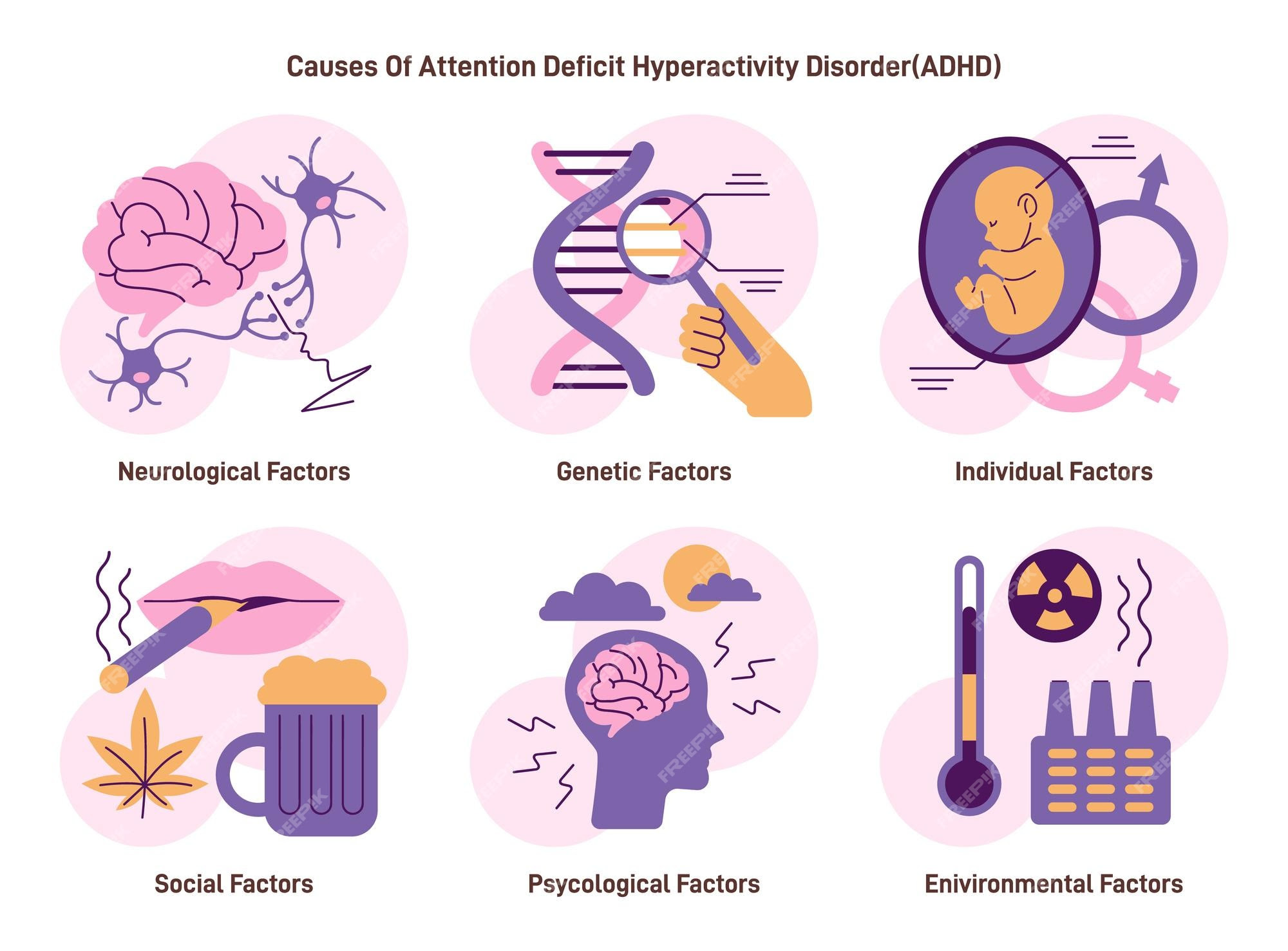Harold Robert Meyer 10/28/2023

Image Source: FreeImages
At A Glance
Childhood adversity refers to various traumatic experiences children may encounter during their formative years. These experiences can include physical or emotional abuse, neglect, parental substance abuse, or living in a household with domestic violence. Understanding the impact of childhood adversity is crucial as it can have long-lasting effects on a child’s development and well-being.
The prevalence of ADHD and childhood adversity
It is estimated that approximately 5-10% of children worldwide have ADHD. Studies have shown that children with ADHD are more likely to have experienced childhood adversity compared to their peers without ADHD. It is believed that approximately fifty-eight percent of children have had some form of childhood adversity.
The link between ADHD and childhood adversity
Research suggests that there is a significant link in that those who experienced adversity are at a higher risk of developing ADHD symptoms. The exact nature of this relationship is still being explored, but it is believed that the stress and trauma associated with childhood adversity may be one contributer to the development of ADHD.
The impact of childhood adversity on ADHD symptoms
Children with a history of adversity may exhibit more severe inattention, hyperactivity, and impulsivity compared to those without such experiences. These symptoms can interfere with the child’s academic performance, social relationships, and overall quality of life.
Possible mechanisms behind the relationship
Several mechanisms have been proposed to explain the relationship between ADHD and childhood adversity. One theory suggests that the chronic stress experienced during childhood adversity may affect brain development and insulin levels within the brain and lead to the development of ADHD symptoms. Another theory suggests that the adverse childhood experiences may disrupt the child’s ability to regulate emotions and impulses, contributing to the manifestation of ADHD symptoms.
Other factors that may contribute to ADHD
While childhood adversity is a significant risk factor for the development of ADHD, it is important to note that ADHD is a complex disorder with multiple contributing factors. Genetic predisposition, neurobiological differences, and environmental factors all play a role in the development and expression of ADHD symptoms. It is essential to consider these factors in the assessment and treatment of children with ADHD. In my opinion, ADHD affects both the brain and non-brain systems. Additionally, I have observed a small but perceptible improvement in ADHD symptoms in people taking GLP-1 agonists for other properly diagnosed reasons. (Please realize that this is not medical advice and is not based on legitimate and peer-reviewed research that I am aware of.)
The importance of early intervention and prevention
By identifying and addressing childhood adversity early on, professionals can help mitigate the impact of traumatic experiences and provide support to children at risk of developing ADHD symptoms. This can involve providing therapy, counseling, and educational interventions tailored to the specific needs of the child.
Coping strategies for children with ADHD and a history of adversity
Children with ADHD and a history of childhood adversity may benefit from learning coping strategies to manage their symptoms. These strategies can include developing routines, using organizational tools, practicing mindfulness and relaxation techniques, and engaging in physical activity. It is important to provide a supportive and nurturing environment where children feel safe to express their emotions and develop healthy coping mechanisms.
Seeking professional help and support
If a child is exhibiting symptoms of ADHD and has a history of childhood adversity, it is crucial to seek professional help and support. Mental health professionals, such as psychologists or psychiatrists, can conduct a comprehensive evaluation to determine the presence of ADHD and develop an appropriate treatment plan. Additionally, therapists experienced in trauma-informed care can help children process their past experiences and develop resilience.
Conclusion
In conclusion, there is a clear relationship between ADHD and childhood adversity. Children who have experienced adversity are at a higher risk of developing ADHD symptoms, and these symptoms can have a significant impact on their daily functioning. Understanding this relationship is crucial for early intervention and prevention strategies, as well as providing appropriate support to children with ADHD and a history of adversity. By addressing the underlying trauma and providing effective coping strategies, we can help these children thrive and reach their full potential. If you suspect that your child may be experiencing ADHD symptoms and has a history of childhood adversity, seek professional help to ensure they receive the support they need.
Harold Robert Meyer 10/28/2023
****
Articles on this site are not intended to diagnose, treat, cure, or prevent any medical condition.
This information may not be complete, accurate, independently verified or up-to-date, so be sure to speak with your healthcare provider before taking any action.
Generative pretrained transformer may occasionally be used
THE ADD RESOURCE CENTER – info@addrc.org
https://www.addrc.org/ +1 646/205.8080
Local, National, InternationalGenerative pretrained transformer may occasionally be used

